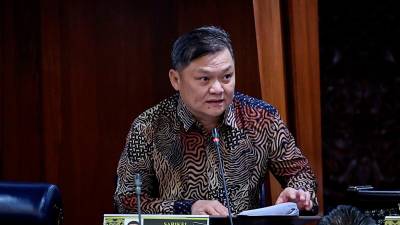KUALA LUMPUR: Malaysia does not allow the import of electrical and electronic waste from other countries to prevent environmental pollution and protect public health.
Deputy Minister of Natural Resources and Environmental Sustainability Datuk Seri Huang Tiong Sii said all 128 licensed facilities in the country are only permitted to process e-waste generated domestically.
“Malaysia does not permit the importation of electrical and electronic waste for processing in the country,“ he said during question time in the Dewan Rakyat.
“The ministry remains firm that Malaysia will not become a dumping ground for scheduled waste from abroad.”
He was responding to a question from Young Syefura Othman who asked whether the ministry intended to expand licensed processing plants to handle imported electronic waste.
Huang said e-waste contains toxic materials such as lead, mercury and cadmium which must be treated and disposed of safely to protect the environment and public health.
In a separate question, the Agriculture and Food Security Ministry assured that efforts to boost local agricultural production are being carried out systematically.
Its deputy minister Datuk Seri Arthur Joseph Kurup said the Large-Scale Smart Padi Project programme is being implemented to increase domestic rice production.
“It involves an area of 3,000 hectares, implemented in stages beginning in 2024 within the Muda Agricultural Development Authority region,“ he said.
To boost local beef production, the Ruminant Development Programme focuses on breeding and expanding high-quality cattle populations.
This aligns with the target of achieving a 50% Self-Sufficiency Rate by 2030.
Arthur said KPKM has introduced targeted programmes to strengthen the aquaculture industry.
These include the Aquaculture Industrial Zone, the Aquaculture Integration Programme and MADANI Community Farm initiatives.
The measures aim to increase production to 958,000 metric tonnes by 2030.
He was responding to Datuk Seri Jalaluddin Alias who asked about the country’s main imported raw materials and measures to reduce import dependence. – Bernama
